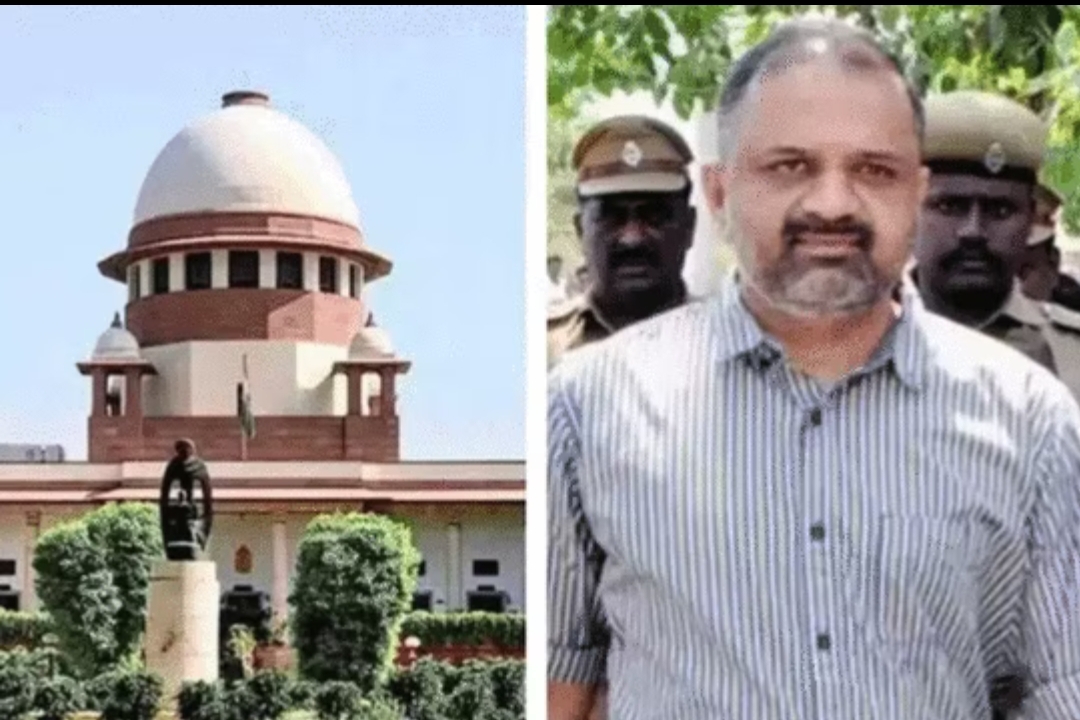Supreme Court’s big decision in Rajiv Gandhi assassination case, order to release AG Perarivalan, who is serving life sentence

The Supreme Court has ordered the release of AG Perarivalan, who is serving a life sentence in the Rajiv Gandhi assassination case. Perarivalan has been in jail for more than 30 years. The top court had said in the last hearing itself that if the government does not take any decision, we will release it.
In the last hearing, the Supreme Court had shown a tough stand
In the last hearing itself, the top court considered the stand of the government to be ‘bizarre’. In fact, the Center replied that the Tamil Nadu Governor has forwarded the state cabinet’s decision to release the convict to the President, who is the competent authority to decide on the mercy petition. The top court said that when people serving short sentences in jail are being released, why can’t the Center agree to release them. The Supreme Court said that prima facie it feels that the Governor’s decision is wrong and against the Constitution as he is bound by the advice of the State Cabinet and his decision strikes at the federal structure of the Constitution. A bench of Justices LN Rao and BR Gavai asked Additional Solicitor General KM Nataraja, appearing for the Centre, to get appropriate directions within a week or else it would accept Perarivalan’s plea and release him as per the earlier judgment of this court. Will do it
Judgment pronounced under privilege
The apex court has ordered the release of Perarivalan through the privileges granted under Article 142. The Supreme Court has taken this big step when the mercy petition in the Perarivalan case is pending between the Governor and the President. The Supreme Court had said that the decision of the state cabinet is binding on the governor and the way for the release of all the convicts is open.
Supreme Court Brahmastra
Justice L. A bench headed by Nageswara Rao, exercising its privilege under Article 142, ordered the release of Perarivalan. The bench said, “The state cabinet took its decision on the basis of relevant deliberations. By using Article 142, it would be appropriate to release the guilty. Article 142 of the Constitution gives the Supreme Court a privilege under which its decision is paramount unless any other law is enforced in the matter.
In 2014, the apex court had changed the decision
AG Perarivalan, the assassin of former prime minister Rajiv Gandhi, was granted bail by the court on March 9 after observing that no complaint was received regarding his conduct while serving sentence and parole. The top court was hearing 47-year-old Perarivalan’s plea seeking suspension of his life sentence till the completion of the investigation by the ‘Multi-Disciplinary Monitoring Agency’ (MDMA). Rajiv Gandhi was killed by a female suicide bomber who detonated herself during an election rally in Sriperumbudur, Tamil Nadu on May 21, 1991. The woman was identified as Dhanu. The court in its May 1999 order had upheld the death sentence awarded to the four convicts, Perarivalan, Murugan, Santhan and Nalini. On February 18, 2014, the apex court commuted the death sentences of Perarivalan, Santhan and Murugan to life imprisonment. The court had decided to commute the death sentence to life imprisonment on the basis of the delay of 11 years in disposal of their mercy petitions by the central government.




